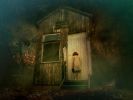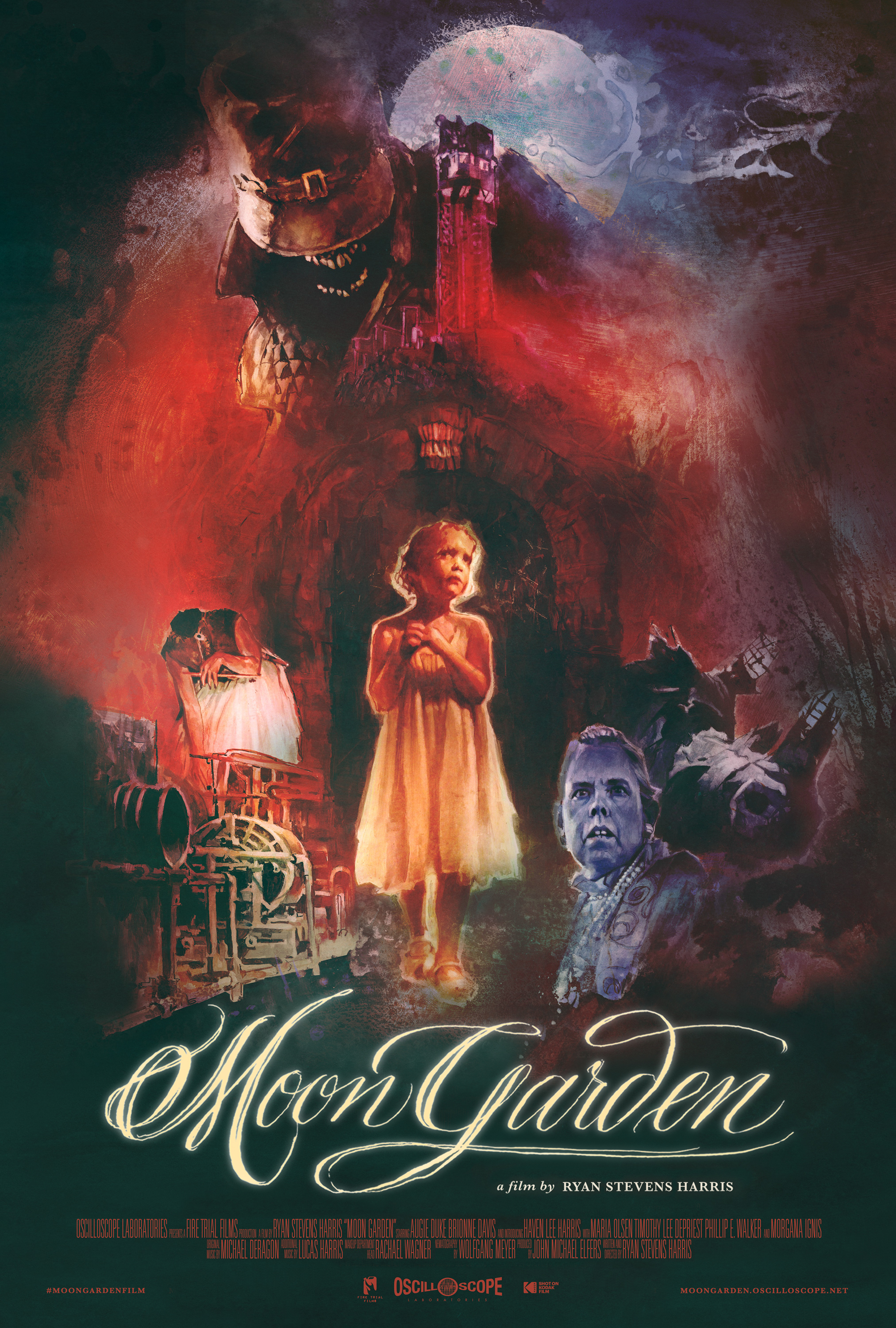Eye For Film >> Movies >> Moon Garden (2022) Film Review
Moon Garden
Reviewed by: Jennie Kermode

There’s nothing like a young, naïve protagonist to introduce viewers to a fantasy world where the rules are uncertain and everything is full of wonder. It’s no wonder, then, that child protagonists have traditionally been popular in the genre, in both literature and film, even in stories which are really aimed at adults. What’s rare is to see a film whose creators have really understood that a child is not just a small adult – that as well as having limited knowledge, children have a completely different way of relating to the world, an animal perspective which only time will tame. Ryan Stevens Harris’ Moon Garden invites viewers to explore not only another world but a very different perspective.
First of all, it has to be said that none of this would be possible without Haven Lee Harris, the most extraordinary preschool age child actor since Woodrow Graves in 2017’s The Crescent. it’s notoriously difficult to direct children at that stage in life. Grasping what is required tends to go along with grasping the fact that adults on set desperately need cooperation, which gives most kids more power than they have ever had before and makes the temptation to misbehave overwhelming. Haven, however, shows not only talent but restraint, and never strikes a false note despite being in almost every scene. It’s also very clear that the film is informed by her take on events. She sets the tone, and the whole production is stronger for it.

For most of the running time, there is no adult to guide this little girl. Her character, Emma, has fallen into a coma following an accident at home – one still more traumatic because of the strained circumstances in which it occurred – and she must find her way out of a strange, magical land in order to recover consciousness. Fragments of real world happenings intrude, reinterpreted, into that land. She overhears doctors telling her parents that her chances are not good, but can’t make sense of that directly. An old man at a piano gives her a small radio through which she can hear her mother speaking to her, and this becomes her guide as she tries to find her way home.
Of course, in any adventure of this sort, there’s a monster. Teeth is a chilling creation, all impenetrable shadows and fierce clicking sounds, possessed by a desire to feed on children’s tears. It hunts our small heroine through nightmare landscapes and does terrible things to the people who help her. Other characters attempt to exploit her plight, giving her tasks to perform in the tradition of many a dark fairy tale. Adults – especially parents – will find many scenes chilling to watch and will hesitate to let young children see the film, although, of course, children are quite capable of concocting such terrors in their own heads. They’re as alert to the darkness in the world as adults are, even if they understand it differently. What’s important about this story, like many of its ilk, is its central message that even the smallest person can survive, resist and make progress through such a world as long as they are brave and smart.
Whilst the child-centred narrative dominates the film, there are other things going on. A gripping opening scene sets us up to expect a narrative which almost immediately twists in another direction, leaving us in a position where we are forced to question our basic assumptions just as the child is. It establishes the tension in a family which is far from the picture perfect unit which we might have expected in a tale like this, and marks the starting point of an emotionally challenging journey for Emma’s mother (Augie Duke), who still hasn’t fully come to terms with what it means to be a parent. Both parents have their own growing up to do and it’s clear to viewers that if Emma makes it back, she won’t be emerging into an untroubled world – but she might return with a new ability to influence her chaotic domestic situation.
In spite of all these fascinating elements, what will grab most viewers first when they encounter this film is simply the way it looks. There are obvious parallels to The City Of Lost Children, but the films of Terry Gilliam will also come to mind (bear in mind that this was made on a tiny fraction of that budget), along with Phil Tippett opus Mad God. With only one previous feature-length work to his name – 2010’s Virus X, which gave no hint of this kind of talent – the elder Harris makes quite an impression. This is the sort of film that sweeps an audience off its feet. The staging is spectacular, the sets inventively constructed, and throughout there are clever allusions to Emma’s struggle to regain control of her sensory apparatus. Most importantly, there is an otherness about it which opens up a space for believing in magic.
A very complete and coherent tale which could do with a bit of tightening up in places but still convinces, Moon Garden really stands out from the crowd. Not everyone finds child-centred films easy to connect with, but if you’re up for that, and you have any interest whatsoever in the fantasy genre, you’d be a fool to miss it.
Reviewed on: 16 May 2023
















